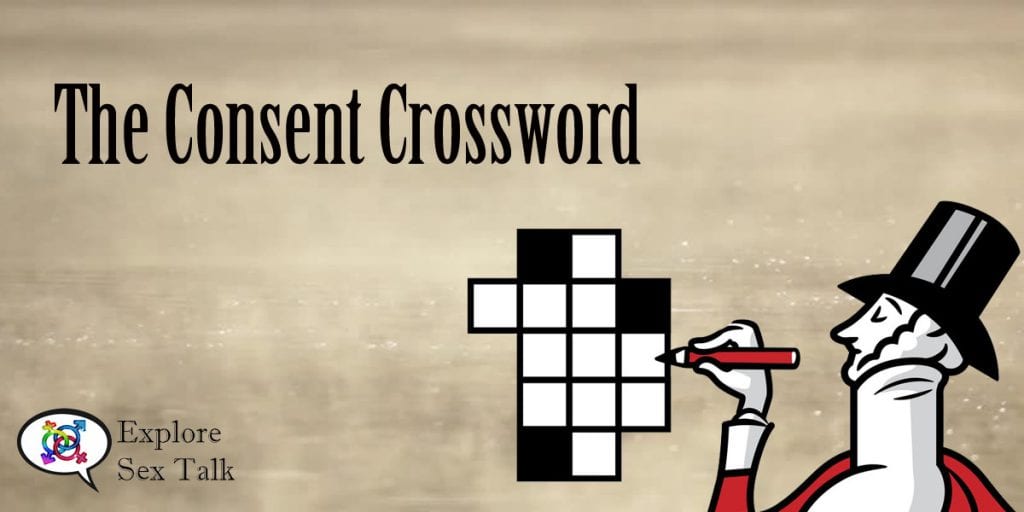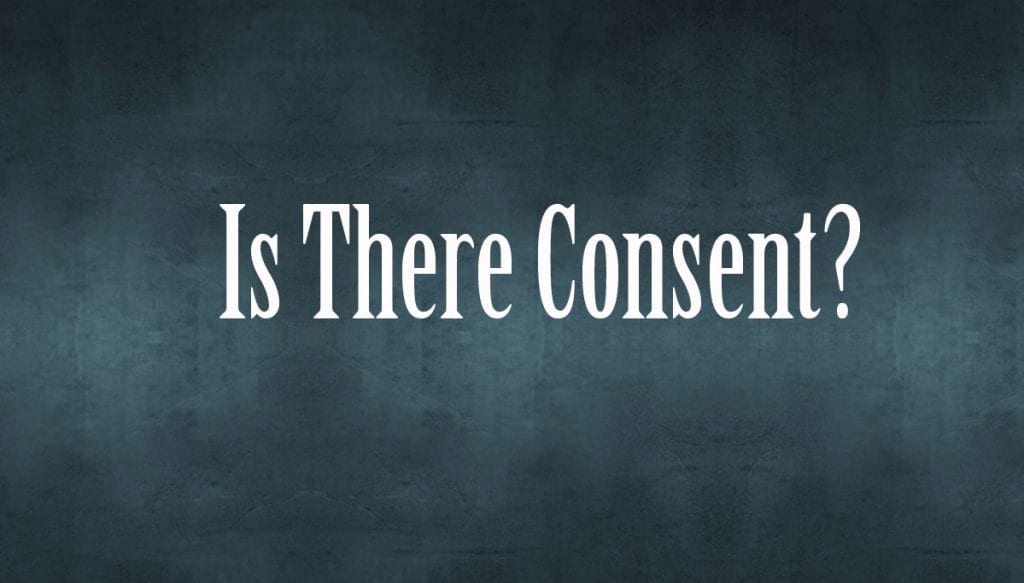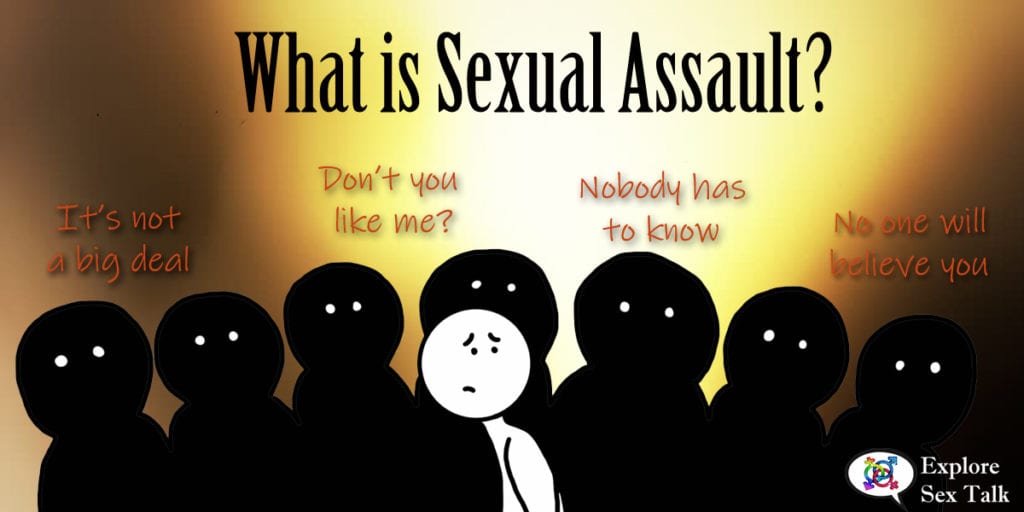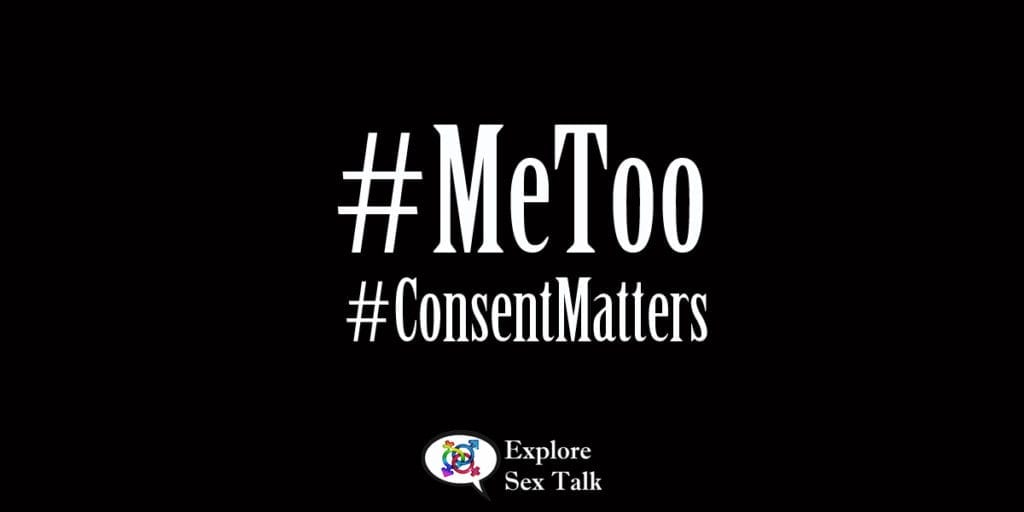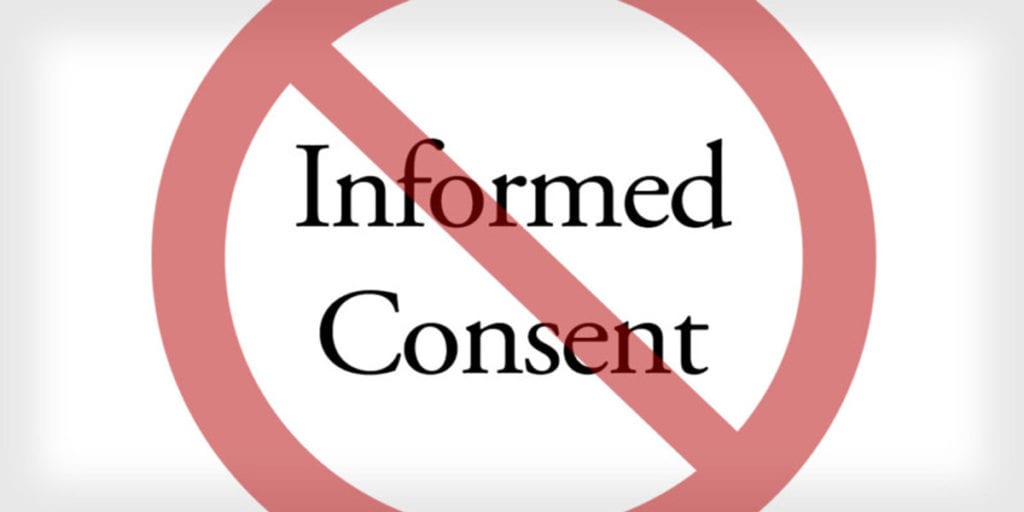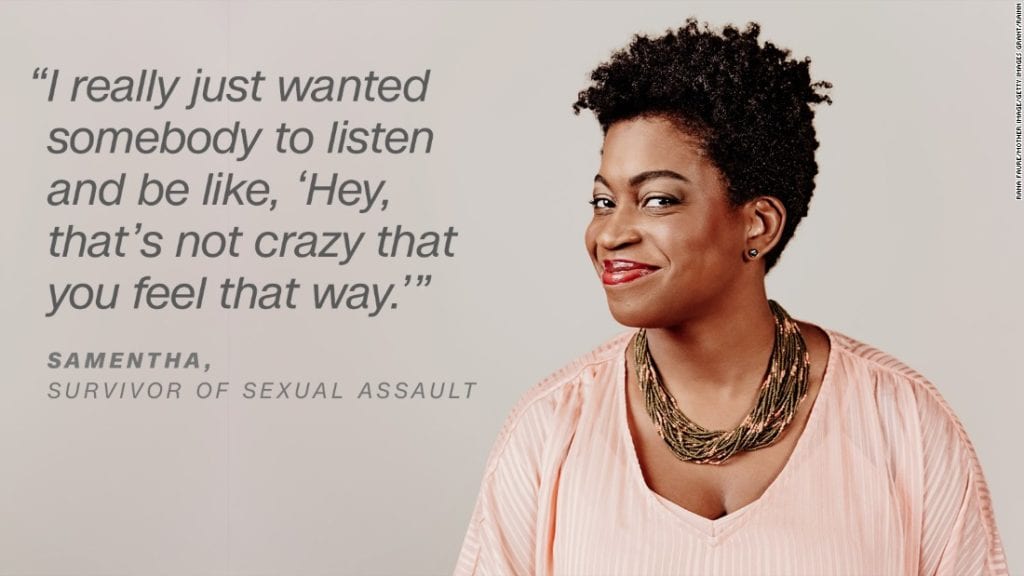Consent
There is Always More to Learn About Consent Most people think that they have a good handle on what consent is but there is always more to learn. Research has shown that most people don’t demonstrate a working understanding of consent when given real-world scenarios. Challenge your perceptions and what you know and continue to […]
Keep Learning & Practicing Consent Communication is like a muscle. We need to practice it to keep our communication skills strong. Consent is an important form of communicating between people. Learn more about consent by picking up a copy of “Got Consent?” or take our Consent Crash Course. Enjoyed this puzzle? Show some love and […]
Learn More About Consent The discussion around consent is continuing to evolve and change. Society, in general, is developing a stronger understanding and acceptance of the importance of consent but there are still many people that feel lost. Even those who feel like they know everything they need to should keep their mind open to […]
Research shows that most people can articulate what consent is but they have a hard time when given real-world situations. The concept of consent is usually pretty black and white but the grey happens when we get into those real-world situations when things are not always clear-cut. Can you identify if consent was given in […]
Some people think that it’s necessary to play hard to get. But what does that actually mean? When we are talking about dating and relationships, this usually refers to putting up some resistance to the attention given by another person. The attention may be their pursuit of a relationship or simply interested in a casual […]
Rape culture is a toxic set of beliefs that are commonly held about the way the world is. It is a culture that normalizes sexual violence and just sees rape as inevitable, unavoidable and a totally normal thing. Rape culture supports and encourages male sexual aggression as well as violence against women and other groups. […]
Sexual consent is a huge and important topic. In the last year, we have talked more about consent than we ever have on a societal level. Thanks to the explosion of the #MeToo Movement, we are thinking much more critically about consent and how it should be applied in different situations. We are no longer […]
Sexual assault can take many forms. The legal definition will change a bit from place to place but it is generally defined as any action that is sexual in nature and violates the sexual integrity of the victim. It is an unwanted and non-consenting action performed by one person on another. In many cases, sexual assault is defined by its lack of freely given consent. It is used as more of an umbrella term that includes a wide variety of unwanted actions…
In the wake of a series of allegations that have been coming forward, Kamloops schools are looking at updating their policies and education around consent issues. There are been two young women who have come forward to report instances of being groped, kissed, or struck by boys at their school. After these events, parents are wondering what is being done.
When is it ok for consent to be withdrawn in a given situation? Is there a point of no return where a person must simply follow through? No matter who you speak to, everyone will have a different opinion about this aspect of consent. There are a lot of different opinions based on people’s experiences and their upbringing but the truth is that most people haven’t really learned about consent. Most people have not taken the time to learn about and explore the topic. They feel they have a good understanding just because they have a basic understanding. Research actually shows that most people aren’t able to correctly identify the finer points of consent. This is why it’s important we continue to have the discussions exploring the different aspects of consent. So when can consent be withdrawn?
Have you ever heard the term “fluid bonding”? Fluid bonding is a fairly simple but an important concept in a relationship. Put simply, it is the agreement between two people to share bodily fluids. This may not seem like a big deal but it has some crucial implications for the state of the relationship, trust, and open communication. There can be different and distinct levels of fluid bonding. For example, you may consent to share saliva with someone but that doesn’t mean that you would be willing to have unprotected sex with them or share blood with them. In most cases, fluid bonding typically refers to the choice to have unprotected sex with an ongoing partner. For it to be considered fluid bonding, it must be a deliberate choice made by the couple.
The #MeToo Movement has sparked a lot of debate and conversation across the globe. It has challenged a lot of common conceptions about the current standards around consent, gender bias, and power imbalances. We are exploring deeper into personal autonomy and how that relates to other people. The movement is giving a voice to many victims/survivors that never felt they had a voice before and highlighting some of the injustices people have endured. The movement is bringing a lot of things to light, many of which have never really been discussed before.
Choice is a crucial part of consent. That seems fairly straightforward and a total no-brainer. When we talk about consent, pretty much everyone would agree that consent should be freely given. It’s easy to talk about it when we look at the black and white definition. The trouble is that the world is never black and white. Many people can define the basics of what consent is, however, those same people struggle to articulate how it should be applied when given real-world situations. It’s not always clear-cut and there’s a lot of debate. So how do we know if consent is actually freely given?
Do you know why when consent needs to be informed? As conversations about consent continue to become more commonplace, more and more people are looking at sexual consent in new ways that they never have before. Consent is about more than just desire. We are constantly analyzing a number of factors, even subconsciously, to determine what our consent will be. Our answers may change based on the specifics of the situation or the person or people involved. Sometimes we consent to things and find out extra information after. This can be upsetting if we feel that information would have changed our choice before the activity. Being able to make an informed decision is an important piece of the consent process.
How can we help those who have survived a sexual assault? It’s important that we start to move more towards supporting those who have been through such an experience. It’s only by taking these steps that we can start to make real change
[vc_row][vc_column][vc_wp_search title=”Search our Site”][vc_widget_sidebar sidebar_id=”default”][/vc_column][/vc_row]



